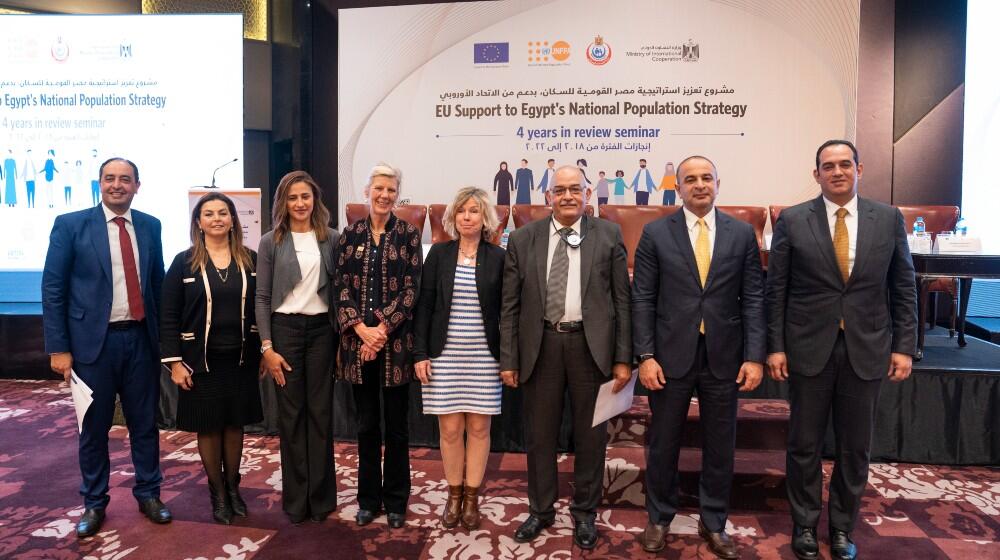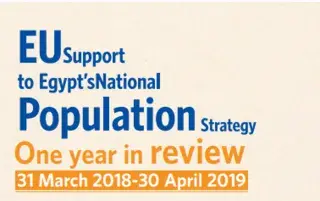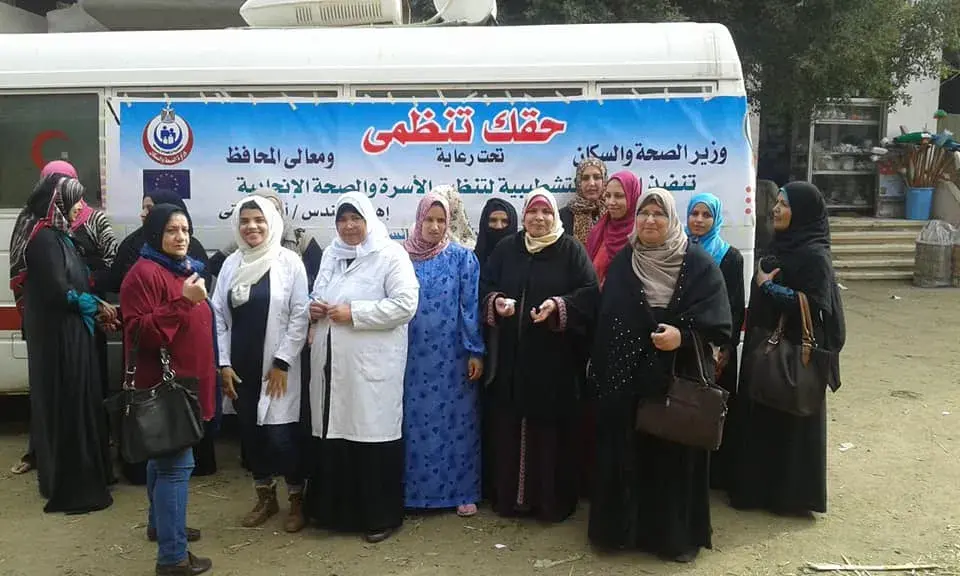The United Nations Population Fund (UNFPA) and the European Union (EU) highlighted the achievements of the EU Support to Egypt’s National Population Strategy with the Ministry of International Cooperation and the Ministry of Health and Population, marking the fourth year of the project in an event on December 12.
The event showcased the achievements of the project over the past four years implemented by national partners, including government entities and civil society organizations, and highlighted its link with the recently launched National Project for the Development of the Egyptian Family.
It brought together Minister of Youth and Sports Dr. Ashraf Sobhy, UNFPA Representative in Egypt Frederika Meijer, Official Spokesperson for the Ministry of Health and Population Dr. Hossam Abd El Ghafar, Assistant Minister of Social Solidarity Dr. Amr Osman, Deputy Minister for Technological Development at the Ministry of Education and Technical Education Dr. Ahmed Daher, Assistant Minister and Supervisor of the European Cooperation Sector at the Ministry of International Cooperation Ms. Sherihan Bekhiet, and Head of Cooperation, Delegation of the European Union to Egypt, Sophie Vanhaeverbeke.
In March 2019, the Ministry of Investment of International Cooperation officially launched the EU support to Egypt's National Population Strategy (2018-2023), in cooperation with UNFPA, the EU, and the Ministry of Health and Population.
With the support of an EU-grant of 27 Million Euros, the project aims at increasing the use of voluntary, rights-based family planning through improved supply of family planning services and commodities, increased demand for family planning, and enhanced governance for implementation of the National Population Strategy.
In his speech, Dr. Sohby said, “We aim, through the memorandum of understanding with the Ministry of Health, to provide family planning services within youth and sports entities and clubs, and to spread awareness through educational activities that include theatre within youth and student camps.”
In a recorded statement, Minister of Health and Population Dr. Khaled Abdel Ghaffar said, “The population issues is imposing itself on the state and society as one of the top priorities in the reform and construction process.”
“We have exerted efforts and put this issue as a top priority and we are achieving continuous improvement that is clearly reflected in numbers,” he added.
“Ensuring access to family planning services and commodities, as well as access to information, is at the heart of UNFPA’s work with the support of the EU,” Meijer said, “This is in line with the Government of Egypt’s vision as the National Project for the Development of the Egyptian Family comes to complement and reinforce the work done by UNFPA and the EU over the past four years.”
On her part, Vanhaeverbeke stressed that achieving sustainable demographic growth is instrumental in balancing population with the available natural resources, meeting the aspirations of the public for a better future. Through this project the EU is standing by Egypt to implement its National Population Strategy in line with the country’s Sustainable Development Strategy, Egypt’s Vision 2030.
In order to achieve the project’s outcomes, UNFPA partnered with the Ministry of Health and Population, the Ministry of Youth and Sports, the Ministry of Social Solidarity, the Ministry of Education and Technical Education, the Ministry of Local Development, as well as faith-based organizations including Al-Azhar University's International Islamic Center for Population Studies and Research (IICPSR) and the Bishopric of Public, Ecumenical and Social Services (BLESS), and civil society organizations namely; Etijah, Gozour and the Egyptian Family Planning Association (EFPA).





